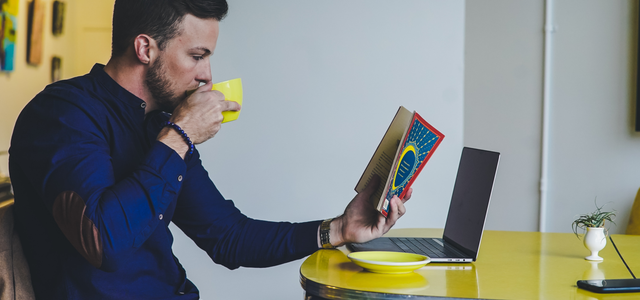
How many cups of coffee a day are healthy? Are energy drinks or teas the better alternative? The health expert Anne Fleck clarifies and gives more tips to get through the day more alert.
Anyone who sits at their desk all day at work probably knows this: In the afternoon, energy dwindles and tiredness sets in. For many, this is the time when they reach for coffee to get fitter again. The internist and health expert for RTL Germany, Anne Fleck, explains in an interview with Die Zeit why not everyone should drink coffee – and why green tea is the better alternative. She also gives tips on how to get through the afternoon slump without coffee.
Pros and cons of coffee
According to Fleck, up to three cups of medium-strength coffee in an average-sized cup are acceptable coffee consumption. Anything beyond that is no longer healthy, according to her. Coffee has both advantages and disadvantages, explains the health expert.
According to Fleck, one of the disadvantages of coffee is that high consumption of caffeinated coffee for a few months promotes insulin resistance and thus promotes type 2 diabetes. Insulin is a hormone that allows sugar from the blood to enter body cells. In diabetes, this process is disturbed and the blood sugar level rises. Type 2 diabetes can be promoted not only by a hereditary predisposition but also by being overweight and lack of exercise.
Fleck emphasizes that “not everyone can easily metabolize coffee and the caffeine it contains”. Just as some people cannot tolerate lactose, there are people who cannot tolerate caffeine. If you feel uncomfortable after a cup, the expert advises against coffee. According to the doctor, people who feel that they need more than three cups of coffee to have enough energy for the day should also avoid coffee.
Also interesting: “Massive increase in blood flow”: This is what happens in the body with coffee
But “moderate or occasional coffee consumption” also has advantages, according to the expert. According to the internist, it can protect the body from diseases, for example from “certain types of cancer such as liver cancer”. The bitter substances in coffee are also good for digestion. According to Fleck, these substances stimulate the liver to produce bile.
Some people simply enjoy drinking coffee and it is a ritual, says Fleck. However, she advises against instant coffee, as it often contains sugar and roasting agents. You should also refrain from coffee with milk, as milk increases blood sugar and activates insulin release. That costs energy.
Energy drinks potentially harmful
Regarding energy drinks as an alternative to coffee, Fleck says in the Zeit interview: “These should always be an exception.” Such drinks are “potentially particularly harmful” because they contain both sugar and additives. According to the doctor, these can trigger inflammation in the body and attack the intestinal flora. In order to gain energy quickly, Fleck suggests a cup of black coffee and a small piece of chocolate. This will get you caffeine and a little bit of sugar. Both wake you up and are “significantly better than this artificial stuff from these energy drinks”.
Green tea is the “better choice than coffee”
A “better choice than coffee” is green tea, according to Fleck. It contains “a lot of valuable secondary plant substances and antioxidants” that are not found in coffee. These could protect against vascular diseases, and researchers around the world also suspect that green tea “reduces the risk of arthritis,” says the doctor.
However, green tea is not comparable to coffee because it “demonstrably does not wake you up as quickly” as coffee. The effect lasts longer than with coffee. The expert therefore recommends not drinking green tea or black tea too late in the day.
Tips to stay awake without coffee
In the Zeit interview, Fleck mentions other tips for escaping the afternoon slump without resorting to coffee, energy drinks or green tea. One way is to breathe in and out deeply to oxygenate the brain. A walk in the fresh air can also help. Sometimes just standing on the balcony or waving your arms is enough. Another trick for an energy boost, according to the expert, is to splash cold water on your face and forearms.
According to Fleck, the choice of food and drinks is also decisive for the energy level during the day. People should therefore drink several large glasses of water throughout the day. Water regulates the energy production of the cells and supplies the body with oxygen, both of which contribute to being more awake. The doctor also recommends meals and snacks that contain a lot of protein and keep the blood sugar level constant. When it shoots up and suddenly flattens out, people get tired after eating. That’s why Fleck uses vegetables, mushrooms, nuts, lentils, chickpeas and beans for her own lunch. The doctor avoids carbohydrates such as bread, pasta and rice, as they provide energy quickly, but can cause the blood sugar level to drop rapidly in the afternoon.
Sources used: Zeit Online
Read more on Techzle.com:
- When can I retire? Online calculator calculates entry age
- Froboese warns: “Who notices that he gains one to two kilos every year”
- “Contemporary”: Munich allows everyone to bathe “topless”